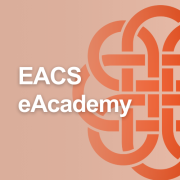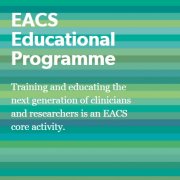ECDC/EACS Standards of HIV Care

Through a collaborative process, jointly led by The European Centre for Disease Prevention and Control (ECDC) and EACS, work was initiated to develop European standards of HIV care.
The standards of care (SoC) for HIV care define the expected, or desired, quality of prevention, treatment, and care for people at risk of HIV acquisition or living with HIV. The standards are based on a scientific rationale, as well as the responsibilities of each stakeholder and ensure that people receive appropriate, high-quality prevention and care that aligns with the most up-to-date medical knowledge and ethical standards.
The standards are person-centred in their approach with a specific focus on being equitable, non-discriminatory, relevant, appropriate, and accessible for people at risk of or living with HIV.
Standards of care have been developed in the areas of HIV testing, pre-exposure prophylaxis (PrEP), commencement of antiretroviral therapy (ART) and HIV and co-morbidities. Additional standards in the following areas are in development and expected to be published in 2026: antenatal screening and engagement in care.
Each standard is based on the following structure:
- Brief description of the rationale for the standard
- Quality statements describing best practice based on current guidelines, evidence, and expert opinion
- Related measurable and auditable outcome indicators used to assess the quality and effectiveness of the services
- Numeric values for defined targets.
For more information on the methodological approach for the creation of the standards of care, please find the steps taken in developing the standard of care modules on ECDC/EACS standards of HIV care.
- Module on HIV testing
-
A significant proportion of people living with HIV in Europe and Central Asia remain undiagnosed, with late diagnosis continuing to be a widespread challenge across the region. Late-stage diagnoses highlight the need for earlier testing and targeted prevention strategies.
Topics included in this module are: Testing policies, Testing strategies, Consent, Diagnosis and transfer to care, Staff training and Monitoring and evaluation.
- Module on pre-exposure prophylaxis (PrEP)
-
Pre-exposure prophylaxis (PrEP) is a highly effective tool for preventing HIV, yet its availability and implementation across Europe and Central Asia remain uneven.
Despite progress in national guidelines and healthcare coverage, access to PrEP is still limited for key populations due to financial, regulatory, and systemic barriers.
Topics included in this module are: Access to PrEP, PrEP initiation, Continuum of PrEP care, PrEP delivery, integrated services and combination prevention, staff training and monitoring and evaluation.
- Module on Commencement of antiretroviral therapy
-
Early initiation of antiretroviral therapy (ART) is essential for improving individual health outcomes and reducing HIV transmission, with global and regional guidelines supporting immediate treatment upon diagnosis.
While treatment coverage has improved across Europe and Central Asia, disparities in access, structural barriers, and health system challenges continue to hinder timely ART uptake, underscoring the need for coordinated efforts to meet HIV elimination targets.
Topics included in this module are: Policy and access to ART, Pre-ART assessment and testing, Initiating ART, Integrated care for key populations, Community and support services, Continuum of care and Monitoring and evaluation.
- Module on HIV and co-morbidities
-
Across Europe and Central Asia, a growing number of people are living with HIV, with an increasing proportion being older adults who face a heightened risk of non-communicable diseases (NCDs) such as cardiovascular conditions, diabetes, cancers, and neurocognitive disorders.
Addressing this dual burden requires a coordinated and standardised approach to HIV prevention and care that aligns with global health goals to reduce premature mortality and promote well-being for all.
Topics included in this module are: Prevention and management of cardiovascular disease, Cancer screening, Mental health, General screening for chronic diseases, Ageing in people living with HIV, Lifestyle interventions and Monitoring and evaluation.
Consult the HIV and co-morbidities Module

EACS Guidelines update now available!
The EACS v13.0 and the app are available for free on


Educational Programme
Training and educating the next generation of clinicians and researchers is an EACS core activity.